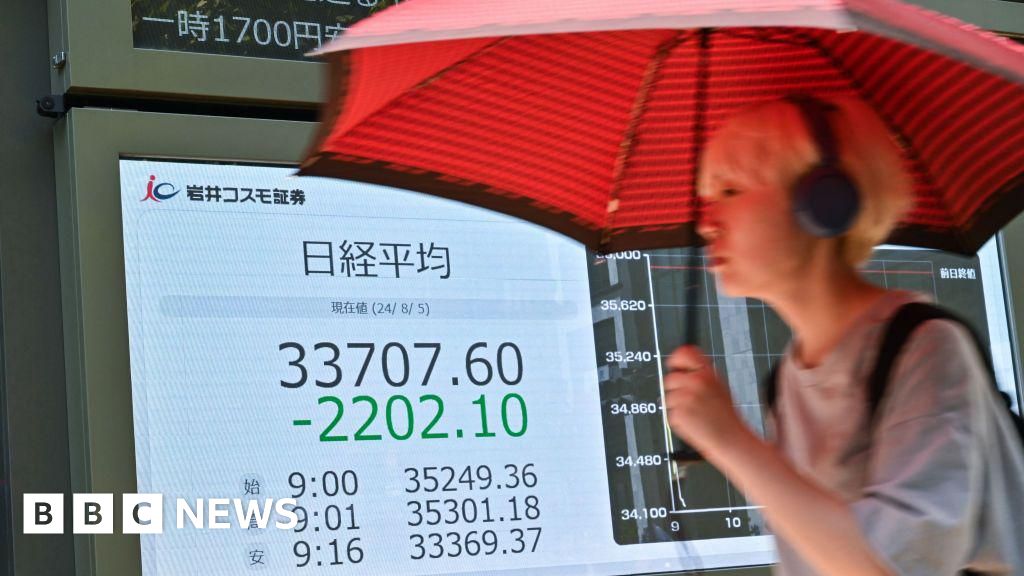Stock markets in Asia slumped on Monday morning, following big falls by major indexes around the world last week.
In Japan, the Nikkei 225 was trading 4.6% lower, while the Topix was down by 5.7%.
It comes after weak jobs data in the US on Friday sparked fears of a recession in the world’s largest economy.
Meanwhile, the yen has been strengthening against the US dollar since the Bank of Japan raised interest rates last week, making stocks in Tokyo more expensive for foreign investors.
“The selloff was instigated by the sharp appreciation of the [yen] as global investors turned cautious on Japanese corporate earnings, especially that of exporters such as automakers,” said Kei Okamura, a Tokyo-based portfolio manager at investment firm Neuberger Berman.
The Japanese currency has strengthened around 9% against the US dollar over the last month.
A stronger yen makes Japanese goods more expensive, and consequently less attractive for potential overseas buyers.
Elsewhere in Asia, Taiwan’s main share index was down by 6.9%, with chip making giant TSMC more than 6% lower.
In South Korea, the Kospi index fell 5.5%, with major chip makers including Samsung down more than 7%, while SK Hynix 6.5% lower.
However, the Hang Seng in Hong Kong was down by just 0.6% in morning trade, while the Shanghai Stock Exchange was 0.2% lower.
On Friday, stocks in New York fell sharply after official jobs data showed that US employers added 114,000 jobs in July, far fewer than expected.
The figures raised concerns that a long-running jobs boom in the US might be coming to an end and drove speculation about when and by how much the Federal Reserve will cut interest rates.

